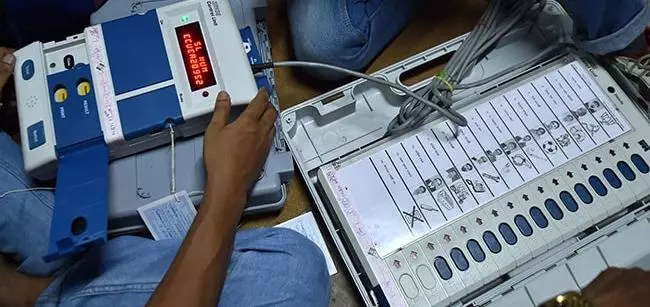
Opposition gathers to discuss RMV labelling it "sketchy"
text_fieldsNew Delhi: According to senior Congress leader Digvijaya Singh on Sunday, the majority of opposition parties have agreed to oppose the Election Commission's proposal on remote electronic voting machines, or RVMs, because it is "sketchy and not concrete."
Following a conference of opposition leaders convened by the Congress and attended by members of the National Conference, Janata Dal (United), Communist Party of India, Communist Party of India (Marxist), Communist Party of India, and the Jharkhand Mukti Morcha, this decision was announced.
Singh claims that the plan for RVMs poses serious political issues, such as a lack of clarity around migrant workers.
The gathering took place the day before the Election Commission was scheduled to show the RVM prototype to representatives of political parties. It was held in Delhi's Constitution Club.
The demonstration has been scheduled by the commission to introduce political party members to the idea of remote EVMs for migrant voters.
Opposition parties talked about the concerns they would bring up with the commission regarding RVMs at the meeting, NDTV reported.
According to Singh, it was determined that the opposition parties would have a unified approach on the matter and afterwards assess the Election Commission's response to these inquiries.
The Congress representative added, "The Samajwadi Party and Nationalist Congress Party had indicated their solidarity with the opposition's stance even though they were not present at the conference.
The election authority announced on December 29 that it had created a prototype of a remote electronic voting machine for migrant voters inside the country and invited political parties for a demonstration. This was a significant move that it claimed would increase voter participation.
If it is put into place, migrant voters won't have to go back to their home districts to cast their ballots.
In an original statement, the Congress had expressed worries that the Election Commission should first alleviate the opposition's fears about the potential abuse of electronic voting machines, or EVMs, before extending their usage, as this "would seriously undermine trust" in the democratic system.























